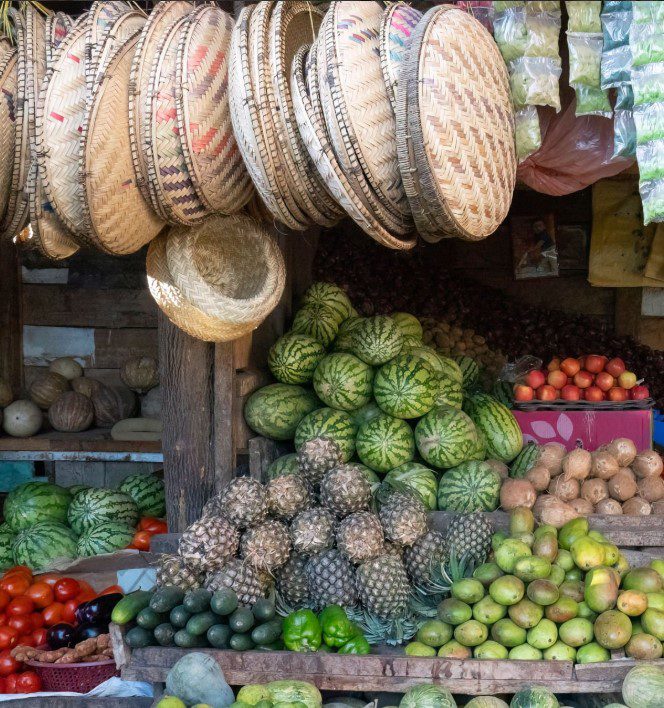How Do I Bargain at Markets in Tanzania?
There’s something deeply thrilling about wandering through a bustling market in Tanzania. The warm scent of spices lingers in the air, vibrant fabrics ripple in the breeze, and the sound of friendly banter echoes between stalls. For travelers eager to connect with local culture, markets offer more than just shopping they’re a portal into the daily rhythm of Tanzanian life. But one question often lingers: how do I bargain at markets in Tanzania? The answer is part art, part etiquette, and all about mutual respect.
Understanding the Tanzanian Market Culture
Bargaining in Tanzania is not just accepted; it’s expected. From local food stalls and Maasai curio shops to colorful kitenge fabric stores and souvenir stands in Arusha or Stone Town, haggling is a common, culturally rich practice. But unlike in some places where bargaining can feel aggressive, in Tanzania, it is often done with good humor and a genuine smile.
Don’t mistake bargaining for conflict it’s more like a friendly negotiation where both sides aim to walk away happy. Think of it as a cultural exchange, where showing interest in the seller’s goods, asking questions, and smiling goes a long way. Sellers often set prices higher for tourists, not out of dishonesty, but because negotiation is simply part of the process.
Start with a Warm Greeting
Before you even begin talking prices, take a moment to greet the vendor. Tanzanians are famously friendly, and starting with a cheerful “Jambo!” (Hello) or “Habari yako?” (How are you?) will immediately set a positive tone. Show respect and take a genuine interest a few kind words in Swahili can turn a transaction into a conversation.
If you don’t speak Swahili, no need to worry many vendors in tourist areas speak English. However, learning a few key phrases like “Bei gani?” (How much?) or “Punguzo tafadhali” (Discount, please) can be very helpful and often earns you a smile or better price.
Know the General Price Range
One of the most empowering things you can do before heading to a market is a little research. Ask your hotel staff or a local guide what typical prices are for the items you’re interested in whether it’s hand-carved ebony figurines, beadwork, batik art, or traditional Maasai jewelry.
If you have the chance, observe a few transactions or even accompany a local shopper. Many markets will also have fixed-price shops nearby where you can get an idea of fair market value. This helps you avoid wildly overpaying and gives you confidence in your offers.
Be Confident, but Polite
When a vendor names a price, it’s usually just a starting point. Don’t be afraid to offer less often about 40-60% of the asking price. This doesn’t mean lowballing to the point of being disrespectful, but rather making a fair counteroffer with a smile.
For example, if something is priced at 50,000 Tanzanian shillings, try offering 25,000 and see how the vendor responds. The key is to be friendly and calm. If the seller laughs or says it’s too low, you can adjust maybe go up to 30,000. Most of the time, you’ll meet somewhere in the middle.
Let the Seller Make the First Move
Always ask for the price first. This gives you a sense of where the seller’s expectations lie. If you make the first offer, you risk starting too high or offending with a figure that’s too low. Once you hear their asking price, you can gauge your counteroffer from there.
Don’t Show Too Much Enthusiasm
Even if you absolutely love that hand-woven basket or brightly colored painting, try not to let your excitement show too much. Vendors can tell when you’re overly eager, and it reduces your bargaining power. Stay calm, admire the item, and then casually ask the price. Keep in mind, bargaining is a dance don’t rush it.
Walk Away If Necessary
One of the most effective bargaining tools you have is your feet. If the seller isn’t budging on a price that feels too high, thank them and begin to walk away slowly. Often, they’ll call you back with a lower offer. If they don’t, you can always find a similar item at another stall. Tanzania’s markets are rich with variety.
However, don’t use this tactic unless you’re genuinely prepared to leave. Vendors appreciate sincerity, and playing games or being rude is never the way to go. Bargaining is about fairness, not trickery.
Buy More, Bargain Better
Bundling items can be a powerful strategy. If you’re eyeing several items at one stall say a necklace, a bracelet, and a pair of sandals ask for a deal on the whole group. Sellers are often more willing to negotiate if you’re buying multiple pieces. You could say, “What’s your best price if I take all three?”
Not only does this approach save money, but it also builds a friendlier rapport with the vendor. In Tanzanian culture, relationship-building is just as important as the transaction itself.
Use Cash, Preferably Tanzanian Shillings
While some vendors in tourist-heavy areas might accept dollars or mobile payments, most prefer cash in Tanzanian shillings. Having small denominations makes bargaining easier and avoids the “no change” excuse, which can be used to round up prices.
Carrying a mix of 1,000, 2,000, 5,000, and 10,000 shilling notes will make it easier to negotiate and settle transactions quickly. It also shows that you’re prepared which vendors appreciate.
Know When to Say Yes
It’s easy to get caught up in the thrill of the bargain, but remember if the price is fair and you like the item, it’s okay to accept without pushing too hard. Often, we’re talking about the difference of just a few dollars. If your offer is met and the vendor is smiling, enjoy the moment and make the purchase.
Many of the items sold in Tanzanian markets are handmade, and the income supports artisans, families, and entire communities. Bargain fairly, but also be generous when it feels right.
Respect Cultural Sensitivities
Tanzania’s market scenes are rich and lively, but always approach with respect. Ask before taking photos of stalls or artisans at work. Don’t laugh at prices or items, and avoid comparing prices aloud in a way that could embarrass the seller.
Bargaining is a shared cultural experience not a battle. When done with empathy and openness, it becomes a beautiful exchange that connects traveler to local, buyer to maker.
Final Thoughts: More Than Just a Price Tag
Bargaining in Tanzania is not just about getting the best deal. It’s about sharing stories, honoring traditions, and stepping into the vibrant world of local commerce with curiosity and respect. It’s a dance of give and take, laughter and learning.
So when you step into the kaleidoscope of color that is a Tanzanian market, breathe it all in. Greet with warmth. Smile often. And let the art of bargaining guide you into moments of connection that money can’t buy.
Because in the end, the best souvenirs you’ll take home aren’t just the treasures in your bag they’re the smiles, the stories, and the human encounters along the way.





